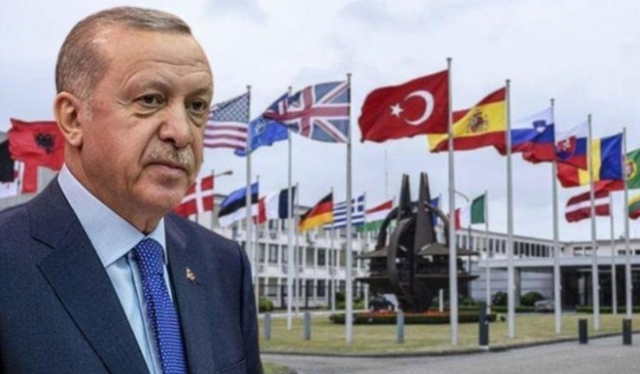Yesterday we discussed the topic of possible negotiations with Turkey regarding Finland and Sweden’s NATO membership (https://golosislama.com/news.php?id=40691). After that, however, the Turkish president hardened his position.
“First of all, we will not say ‘yes’ to the membership of NATO, a security organization, to those who impose sanctions against Turkey. Because then NATO ceases to be a security organization. We cannot say ‘yes’. They cannot stab us again where we have already been stabbed. They [delegations from Finland and Sweden] will come to Turkey on Monday. They will come to convince us, sorry, they have nothing to hope for. Sweden is a hotbed for terrorists. Sweden and Finland do not have a clear position against terrorism,” said Recep Tayyip Erdogan.
Perhaps in this story we need to consider the issues of form and content separately. In terms of form, the current Turkish president is known as a negotiator who starts with the toughest position and then gradually reaches a compromise. This is normal, especially considering that his partners have known him for more than a day, so there is hope that it will happen again this time.
As for the content of his position, we can extract several different arguments from it.
1. Regarding sanctions against Turkey, he is definitely right – to impose sanctions against a country and expect its support is simply absurd. Therefore, Sweden and Finland will have to lift their sanctions against Turkey if they want its support. Erdogan will probably stick to this position and be right.
2. The issue of banning the Kurdistan Workers’ Party (PKK) and its affiliates. The PKK is officially banned in the EU (as well as in the USA), so EU member states such as Sweden and Finland do not even have to ban it separately; they only have to follow the position of the organization to which it belongs. Therefore, Turkey’s position in this matter also seems justified – if these countries hope for their support, the organization fighting against them should disappear from their legal public life.
3. The issue of Gulenists and their extradition from these countries to Turkey is objectively the most difficult situation. Because these countries are constitutional states, and unlike the PKK, which is banned in the EU, they are not banned in these countries or in the EU. Therefore, they grant asylum to their members based on the same logic that they grant asylum to members of Hizb ut-Tahrir and Jehovah’s Witnesses who are persecuted in Russia, because unlike Russia, they are not banned in these countries.
It is highly unlikely that they would officially ban the Gulenist movement, whose public ideology does not include what the Turkish authorities accuse it of. Alternatively, they will have to work hard to prove that the publicly stated goals of the Gulenists actually hide terrorist activities, which they have not been able to prove in the West. The same goes for the extradition of Gulenists – for it to be successful, Turkey will have to prove that these individuals were involved in specific crimes, rather than just being members of a banned organization.
So here we can separate the public stance of Sweden and Finland towards Turkey regarding sanctions and the activities of a group banned in the EU, which may be revisited, from the fundamentals of their policies as rule of law states, from which they are unlikely to deviate.
And here we come to what Erdogan is basically inclined to – a positive decision on Finland’s and Sweden’s NATO membership in exchange for or blocking this process. In the second case, it should be understood that this step could have far-reaching consequences. As we have already seen with the situation in Ukraine, NATO solidarity practically collapsed when some member states practically helped Ukraine themselves, because it was impossible to achieve this at the bloc level.
And if the same story is repeated now on an issue of fundamental importance for the future of the entire bloc, it could simply lead to its split. This seems unlikely at the moment, of course, but it cannot be ruled out that countries inclined to decisive joint action will create their new military bloc, either by leaving NATO or in parallel with it.
Such a prospect also has consequences for Turkey, since both Turkey and Greece, which are currently at odds with each other, are members of NATO, which cannot support one against the other. But if a new European defense alliance is created tomorrow, Greece may join it and Turkey may not, in which case Turkey will face a more dangerous opponent.
Therefore, Erdogan has to decide here – does Turkey want to move together with Europe towards strengthening and expanding the collective military alliance, or does it want to distance itself from it? After all, Erdogan’s teacher, Necmettin Erbakan, called for Turkey’s withdrawal from NATO and the creation of the Islamic Union. But are Turkish society and the state, as well as its potential partners in the East, ready for this?
In general, it should be understood that what is at stake in this case is not only the membership of two countries in NATO, but possibly the future of this alliance as a whole and the choice of Turkey’s geopolitical strategy.

